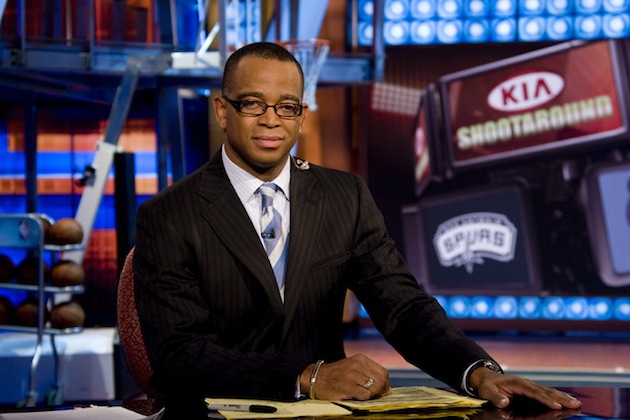Today, we lost a legend.
It’s the fall of 2006. I was starting my sophomore year at Mount Vernon Nazarene University, and I took on a role that confirmed my passions and sparked a series of opportunities that played a huge part in my college experience. In my first year of college, I dove into broadcasting as a primary focus for my Communications major. I quickly learned that radio broadcasting wasn’t my forte, struggling to sit in a small room on my own late into the night, knowing that all personality had to come from voice, and with zero opportunities for timely feedback. All intuition of having an entertainers’ personality was suddenly questioned in a complex mental breakdown that many 18 year olds experience in school. My small, private school didn’t have a video broadcasting major at the time and I found myself looking for a new career path.
But after lining up a part-time job with the athletic department as a sports information assistant, I received the chance to announce a women’s basketball game, after dozens of shaky-voiced introductions at both soccer and baseball games in the year prior. My confidence began to build, and I remember spending hours on YouTube listening to sportscasters, public announcers, and hype men from my favorite sports teams. As I inherited the announcer role for the Men’s basketball team, I took a few lessons from Detroit Pistons PA John Mason and watched as much SportsCenter as I could in a fervent game of catch-up from a childhood without cable television. And no sportscaster caught my teenage eye more than Stuart Scott, a young and vibrant Tarheel grad that kept things fresh and original.
Stuart always took a chance on the unknown, introducing phrases like “Boo-yah!” into nightly highlight reels, or my personal favorite, describing breakout players as, “cooler than the other side of the pillow”. Stuart boldly, yet casually, asked Michael Jordan if he pushed off of Byron Russell while taking the game winner in the 1998 NBA Finals, showing both guts and gumption. These signature moves helped me define my own voice, which relied on big play catchphrases, creative puns and nicknames, high-energy interactions, and the expectation to keep the audience grinning from ear to ear without distracting from the sheer talent on the court that brought each of us together each night. Without entertainers like Stuart Scott, not a single “Boomshakalaka” would have rang through that old, sweaty gym in Mount Vernon, Ohio.
While my career has taken me out from behind the microphone at sports games, there is so much to be said about how his character and personality affected my own life, along with the lives of millions of sports fans out there.
What I Learned from Stuart Scott:
- Take risks.
- Be a fighter.
- Love your family first.
- Never quit.
- Do you and be great at it.
The personal brand of Stuart Scott became reliably known as a game-changing, attention-grabbing hybrid of sports knowledge, respect, and diversity that goes beyond race and into the spectrum of how to break the latest news in athletics. Even in the last few years as he battled cancer, Stuart continued to keep ESPN fun and ever-changing, announcing SportsCenter Top 10 highlight sections with references to a NBA All-Star game skit by comedians Scott Key and Peele, a spoken word segment series including a Michael Jordan poetry slam, and dozens of “This is ESPN” commercial shorts that keep us entertained between whistles.
But Stuart Scott’s voice is much more than the vehicle for a great catchphrase. He revolutionized sports entertainment as we know it, and while we may no longer be blessed to have him in our living room every evening, he will rest assured that much like the greatness of Jordan, Payton, Ripken, and Ali, his impact is an unforgettable legacy for sports fans around the world.
“When you die, it does not mean that you lose to cancer. You beat cancer by how you live, why you live, and in the manner in which you live.” – Stuart Scott
